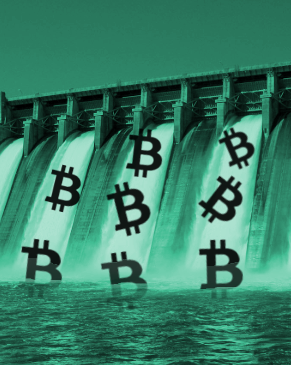Bitcoin rise recounted
 Bitcoin has been described as an “insurrection”
Bitcoin has been described as an “insurrection”
As Bitcoin once again surges past the AU$100,000 mark, well-known Australian economist Alan Kohler presents a fresh take - that the cryptocurrency's nature extends beyond mere speculative frenzy.
In a week marked by record-breaking prices, the digital currency's resilience continues to baffle critics and enthusiasts alike.
After 2022 saw a dramatic 75 per cent plunge in Bitcoin's value, many prematurely heralded its demise. Yet, as 2023 unfolded, Bitcoin defied naysayers, tripling in price and returning to its former glory.
Kohler provocatively claims “bitcoin is not a Ponzi bubble. It’s worse – an insurrection”, in an article for The New Daily.
This recent resurgence invalue leads up to Bitcoin's fourth “halving” - a critical event set to occur on April 19. This cycle, mirroring past trends, occurs in the wake of Wall Street's creation of Bitcoin ETFs facilitating easier access for investors, significantly impacting its valuation.
Kohler delves into the intricacies of Bitcoin mining, a process bound by a regulated supply and governed by a system of inherent controls. This mechanism, according to Kohler, stands as a subversion to traditional financial systems, posing a challenge to conventional market dynamics.
The economist outlines three core principles underlying Bitcoin's regulation: the difficulty adjustment in block generation, the halving of block rewards approximately every four years, and the ultimate cap of 21 million bitcoins.
These features, he argues, render Bitcoin “the most tightly controlled financial asset known to man”, compared to the limitless issuance of traditional securities and currencies.
Australian Bitcoin miner Iris Energy's operations exemplify the lucrative, yet energy-intensive nature of Bitcoin mining. Despite its environmental footprint, the venture's profitability underscores the cryptocurrency's enduring allure.
Kohler refrains from speculating on Bitcoin's ultimate role within the financial ecosystem, whether as a transactional medium, a wealth reserve, or merely a speculative instrument.
Instead, he invokes historical parallels, suggesting that, much like paper money's evolution, Bitcoin's impact may be profound, albeit uncertain.







 Print
Print